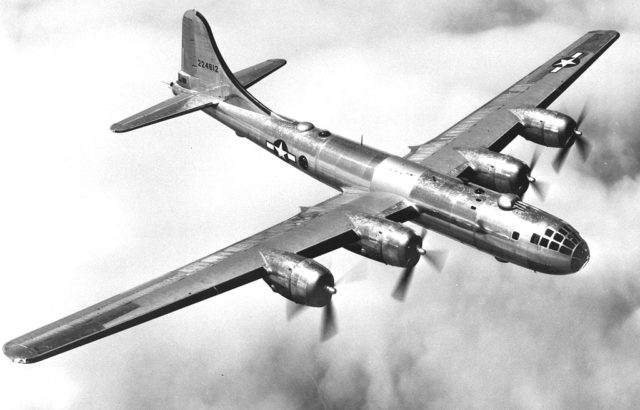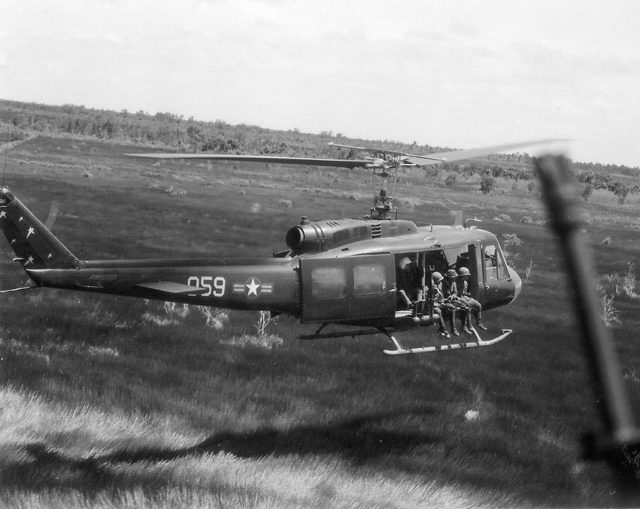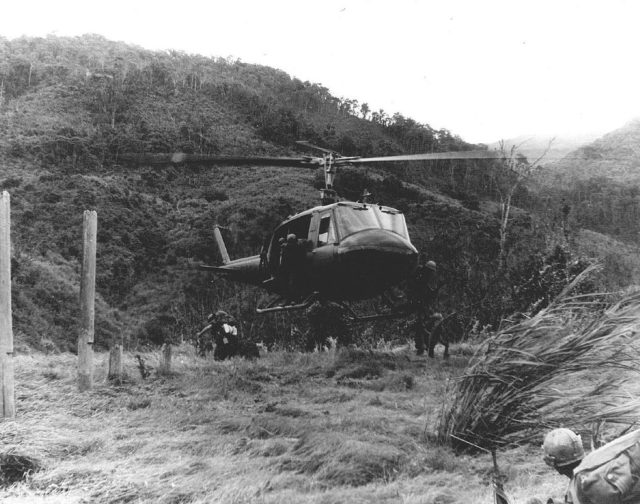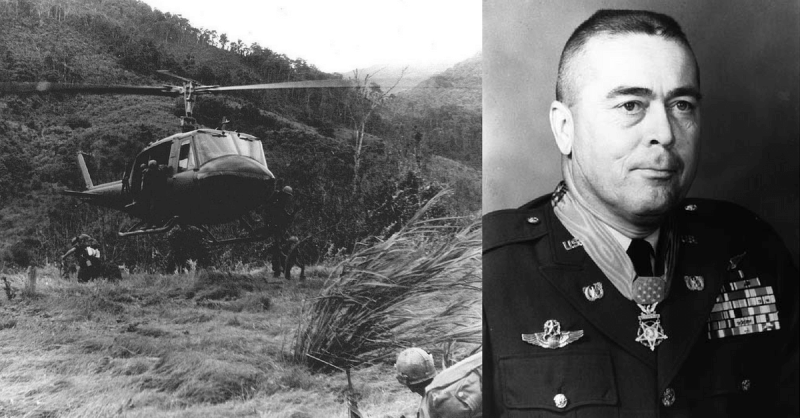Imagine flying into heavy enemy fire to rescue your son who was shot down. Alternatively, imagine rescuing your injured father under the same circumstances. All this and that wasn’t even what Mike Sr. received his Medal of Honor for. Novosel Sr. flew bombing runs over Japan in a B-29 Superfortress. After the war, he entered the reserves to be able to raise his family, eventually getting his son, Mike Jr. into flying.At the start of the Korean War, Novosel rejoined active duty. He flew more combat missions before joining the reserves again and flying as a commercial pilot. According to his son, Novosel was moved by JFK’s “Ask not what your country can do for you; ask what you can do for your country,” and again volunteered, this time for the Vietnam War.
At the start of the Korean War, Novosel rejoined active duty. He flew more combat missions before joining the reserves again and flying as a commercial pilot. According to his son, Novosel was moved by JFK’s “Ask not what your country can do for you; ask what you can do for your country,” and again volunteered, this time for the Vietnam War.

Novosel hoped to be an instructor but was put near, sometimes on, the front lines as a Huey Medevac pilot. He flew thousands of missions during the war, extracting over 5,500 men. Eventually, Mike Jr. decided to follow in his father’s footsteps and joined as a Medevac pilot as well.
Mike Sr. was able to give his son the traditional dollar ride, the first official ride in the pilot’s main aircraft. Novosel Sr. also was the one to officially clear his son to fly. The two flew in multiple separate missions over several months. In one seemingly simple flight, Mike Jr. was shot down. Mike Sr. was returning from a mission when he heard that his son went down. A simple detour later and Mike Jr. was rescued without incident. Mike Jr.’s wounds were minimal as he was up and flying in a few days.

A very relieved Mike Sr. continued his flight after securing his son’s safety. Less than a week later, however, Mike Sr. was shot down himself. His tail rotor was torn off and Mike Sr. went down in a rice paddy. As coincidence would have it, Mike Jr. was out and ready to take the call. He quickly came to his father’s aid and pulled him out.
Mike Novosel Sr. would eventually be flown to the departure base by his son who took over his father’s call sign. Before that, however, Novosel Sr. would perform such a heroic and selfless rescue that it would earn him the Medal of Honor.
On October 2nd, 1969, Novosel Sr. got a call about a pinned down Vietnamese unit and went in without any air cover, only an orbiting command and control aircraft. Through the dense grass and other vegetation, Novosel could not spot a single Vietnamese soldier, though command told him he was right over them. It soon became apparent why none of the wounded could be seen. They were prone in the deep grass because the Viet Cong/NVA had them surrounded. The enemy soon opened fire on Novosel’s Huey from all directions.

It was only after flying low over the whole area that the Vietnamese troops began gaining the confidence to stand up and be seen. Finally, Novosel was able to fly over and began picking up the troops. Without radio contact and no interpreter, it was difficult to coordinate who should go to the chopper and who should take cover.
Novosel ran two separate runs, escorting the wounded to a base, under heavy fire before finally getting an attack helicopter escort and suppressive bombing runs. Despite the cover, the enemy was well entrenched on the heights and still rained fire from all directions. Ready to be done on his third and final run, Novosel saw a lone wounded man up the hill as close as 10 yards to the enemy position.
Novosel decided that the best option was to back the tail of his Huey up to place the largest section of the helicopter between the Vietnamese soldier and the attacker’s position. This risky and complicated maneuver actually worked, and small-arms fire rattled off the Huey with little effect.
All was going according to plan until a Viet Cong/NVA lined up to fire right through the front windscreen of Novosel’s seat. A barrage of automatic fire ripped through the windscreen and the bottom viewing plexiglass. Novosel was wounded by fragments in his right leg and had a bullet tear through the sole of his shoe. This led to a jerk reaction tipping the Huey back and to the right, though Novosel was able to recover quite well. His rescue fell onto the landing skids but was able to be pulled into the helicopter as Novosel flew back to base.
Holes were punched through the rotor; the radios were destroyed as well as a few of the non-vital instruments and other cosmetic damage. Novosel’s wounds turned out to be fairly light, especially considering the terrible position he found himself in. He was credited with saving 29 lives that day, men who almost certainly faced a terrible captivity or death and was so bestowed the Medal of Honor. He heavily praised his crew and has always praised his country for the many opportunities it afforded him. He passed away in 2006 at the age of 83. His son has most recently flown helicopter support for offshore oil platforms.
